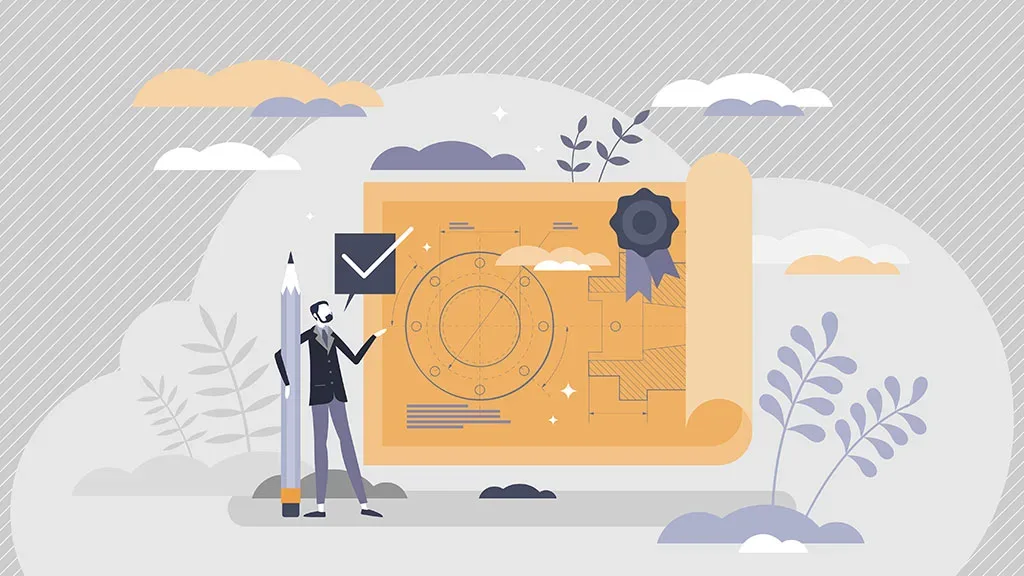by Stephanie Pottick, Esq., Pottick Law PC & Protect for Success
Picture this: You finally made it on Shark Tank! There you are, making that pitch — smiles and heads nodding all around and you’re sensing the electricity in the air. Finally, the Sharks ask, “Do you own your IP?” and you say, “Yes, of course.” Then you hear those magic words: “Do you accept our offer?”
As you’re about to shake on it, the doors behind you burst open and a graphic designer slides in beside you like a baseball runner heading for home plate and yells, “Wait a minute, that’s my IP, I created it!” Shocked, you look back and forth between him and the Sharks. Dumbfounded, you try to gather your wits and stammer, “But, but, I paid you for that.”
While it seems dramatic, these situations actually happen and are avoidable by taking easy steps to ensure you actually own your intellectual property (IP).
Before diving into this, let’s quickly review the most common types of IP: copyrights, trademarks, patents, and trade secrets. While IP ownership issues can come up in connection with any of these, for practical purposes, copyrights are the most common type of IP that’s involved when it comes to working with, collaborating with, or hiring people to assist you with your project or product. Keep in mind that working with people can also apply to family, friends, or other connections who you may ask to help you out. So, while we’re primarily focusing on copyright ownership, you should also consider your trademarks, patents, and possible contributions to your trade secrets.
“The likelihood is that [anyone other than you who worked on your products] will own their contribution to it … You do not automatically own IP created for you, even if you pay for it.”
So, let’s tackle the statement from our Shark Tank pitch person earlier who said they paid for IP. The default rule is typically if anyone other than you has worked or is working on any of your projects or products — especially if that contribution is creative in nature — the likelihood is that they will own their contribution to it. That means you do not automatically own IP created for you, even if you pay for it.
With that in mind, here are some simple steps you can take to minimize a lawsuit or a sudden deal stopper:
1. Make sure you know who owns what when it comes to your brands and products. If you need to, ask an expert, such as an IP attorney.
2. Get the ownership agreement in writing (ideally before the work is created). Unless there is a signed contract to the contrary, ownership of copyrights and other IP rights can vest with the creator of any given work, even if you paid for it.
3. Have specific language in the contract that signals to both parties that you own the IP to creative works or any contributions made for you or your company by a third party. Some examples, for your reference only, are as follows:
• The creation or work is a “work made for hire” from the moment of creation and you (or your company) shall be the sole and exclusive owner over all rights, including, without limitation, moral rights, to that creation or work.
• The person or company creating the work for you or your brands “irrevocably transfers (or irrevocably assigns) all rights, including, without limitation, moral rights to the work.”
• You own not only all the “works” created for you, but also all derivatives based on those works.
4. Have the right person sign the contract. Who is that? Anyone who does anything of a creative nature for you or helps you with your products and brands.

Quick tip: With employees, it’s generally presumed that ownership of anything created within the scope of employment will be owned by the employer as a work made for hire, but it’s always better to check and be sure.
You work hard on your creation so it pays to own your IP. Spotting this issue up front can save you time and money and possibly getting that deal on Shark Tank. Wishing you much success!
*Disclaimer: This article is for informational purposes only and not intended as legal advice.
A version of this article was originally published in the 2023 edition of The BIG Toy Book. Click here to read the full issue! Want to receive The Toy Book in print? Click here for subscription options!


